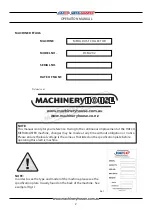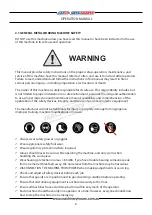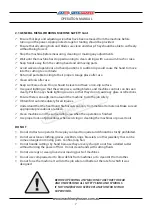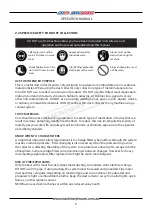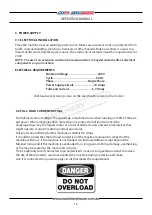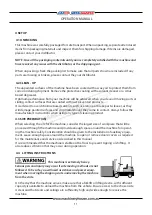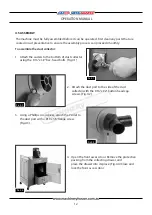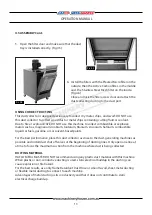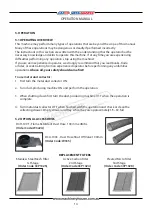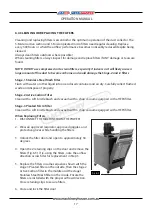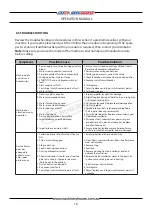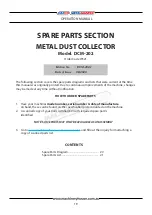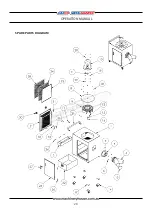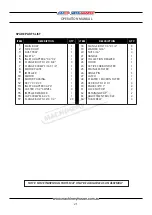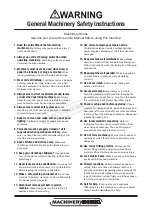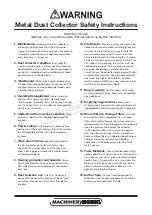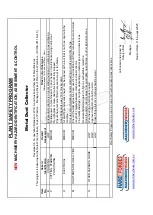
9
OPERATION MANUAL
2.2 SPECIFIC SAFETY FOR DUST COLLECTORS
DO NOT use this machine unless you have been instructed in its safe use and
operation and have read and understood this manual
Safety glasses must be
worn at all times in work
areas
Approved respirator
should be worn.
Gloves must not be
worn when using this
machine.
Sturdy footwear must be
worn at all times in work
areas
Close fitting/protective
clothing must be worn
Rings and jewelery must
not be worn.
USE FOR INTENDED PURPOSE
.
This is a metal dust collector and is only designed to capture noncombustible or non-explosive
metal particles. When using the dust collector only collect one type of metal/material at one
time. DO NOT use to collect wood or wood products. DO NOT use it to collect lead, magnesium,
niobium, tantalum, titanium, zirconium, hafnium, asbestos, crystalline silica, gypsum, or any
other non-metal products. DO NOT use to capture welding fumes, gases, vapors, liquids, smoke,
or ordinary combustible materials. DO NOT connect this dust collector to any machine using a
coolant system.
TOXIC MATERIALS.
Care should be taken not to expose operators to certain types of metal dusts or fumes that can
result in serious, potentially deadly health effects. To reduce this risk, investigate the toxicity of
metal types you work with and always seek to minimize or eliminate exposure to the operator
and other bystanders.
KNOW WHEN TO CHANGE FILTERS
A simple but important safety requirement is to change filters when airflow through the system
reaches a reduced pressure. Filter changing is also necessary when the pressure drop across
the collector is affecting the ability of the system to capture dust, allowing it to escape into the
atmosphere. Some cartridge filters can operate longer between changes. However, for heavy
dust-loading applications, filter replacement might be much more frequent.
RISK OF FIRE/EXPLOSIONS.
Only connect with smooth-walled, sheet-metal ducting, to minimize static electrical charge.
DO NOT use PVC pipe. If using ducting, the system must be sealed and grounded. Fine metal
dust particles can ignite, depending on material type and circumstances. Be educated and
prepared to fight a combustible metal fire. Keep the dust collector away from pilot lights, open
flames, or other ignition sources.
NEVER use near chemical fumes or within an enclosed spray booth.
Содержание DCM-202
Страница 20: ...20 OPERATION MANUAL SPARE PARTS DIAGRAM ...


